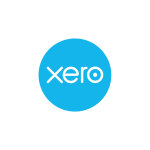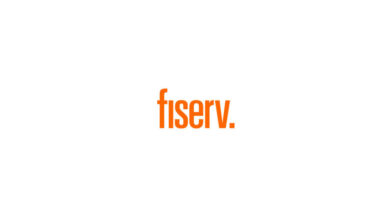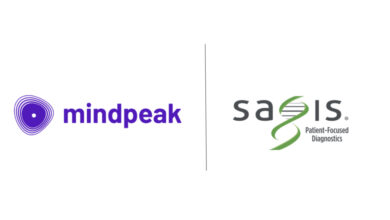Five to Survive: 65% of Canadian Small Businesses Surveyed Give Themselves 5 Years or Less to Make It

New report uncovers what motivates entrepreneurs to launch small businesses,
how generational perspectives vary, and COVID-19’s effects on business owner outlook
TORONTO–(BUSINESS WIRE)–#Accountant—Xero, the global small business platform, today released a new report called “The Tipping Point: Making the Jump to Self-Made”. The result of a survey of 1,200 small business owners across Canada, the report looks at the driving forces and defining moments that prompted individuals to venture out on their own and start their own small businesses.
Notable among the findings is that almost two-thirds (65%) of small business owners surveyed give themselves five years or less to make it or break it. This is much more pronounced with newer business owners that have operated for less than a year (75%). Only 29% of respondents placed no time limit on their success or failure.
The pursuit of a dream
According to the report, 41% of respondents say the defining moment in their decision to start a business occurred when they became overcome with a passion for entrepreneurship. Members of Generation Z are the most likely (at 53%) to cite this entrepreneurial zeal as their main motivator. Gen Z is also the most likely to cite passion/purpose in work (30%), financial reasons (18%), and creating a legacy (12%) as the strongest motivating factors.
“We quit our nine to five jobs with the dream of creating a unique hospitality brand that delivers good vibes and high design for visitors. Years later, due to COVID-19 travel restrictions, we decided to diversify our business and bring some of The June to people in their homes via an online shop,” says April Brown, co-founder of The June Motel.
Co-founder Sarah Sklash adds, “Pivoting into e-commerce wasn’t easy but, by working with cloud-based systems that all integrate into Xero, we’ve been able to build up this new offering all while scaling our business and keeping tabs on our operations and performance.”
Having to deal with horrible bosses and leadership at previous jobs prompted 12% of respondents to take the reins of their own businesses. In fact, almost half (47%) cite the increased flexibility and control that comes with being one’s own boss as their strongest motivation for starting a business.
The reality check
The dream is that becoming your own boss and assuming total control will result in reduced stress. The reality is a little different. According to the survey, 43% of small business owners call this the greatest misconception about starting a business.
Owners of businesses that have been in operation for more than 20 years are more likely to cite the idea that you will have more control over your time (43%) as a misconception, compared to a third (33%) overall.
The price tag on success
How do you measure success? For small business owners, profitability is one of the key indicators. According to the respondents, when small business owners first start out they define success as achieving profitability (45%), making more money than they were previously (35%), and achieving strategic growth and market-share goals (19%). Reaching the point where their business is breaking even may take some time, and newer entrepreneurs (30% vs. 19% overall) are more likely to see their first sale as the sign of success.
However, as they invest more time into running the business, factors such as legacy creation (26%) and strategic growth (27%) have become more important.
Cautious optimism
Small business owners express increased confidence about the business outlook as we move towards the summer and beyond. While the report finds that small business owners are generally positive about the economic outlook as it relates to the health of their business, Gen Z respondents are much more optimistic than their Baby Boomer counterparts.
Newer businesses are also feeling more optimistic, with 32% of those operating less than a year characterizing their outlook for summer 2021 as “much better” compared to 13% of those who have been operating for more than 20 years. For fall 2021, those numbers are 36% vs. 22%, and 44% vs. 26% in winter 2021-22.
“When the pandemic hit, we had to re-evaluate our business and make some critical adjustments to the way we operated,” said Chef Rosemary Woods, co-owner of F&B Hospitality Group. “We quickly realized technology and flexibility would be key to our ability to make it through the year. It’s been a lot of work, but we’re looking forward to what the future might hold for us and our new takeout-only pizza pop-up.”
When the going gets tough…
The long-term effects of COVID-19 are undeniable. A majority of survey respondents (74%) believe the pandemic will have a long-term economic impact. This view is strongest among Baby Boomers (81%) and lowest among Gen Z (54%).
While many say the pandemic has made it difficult to launch new businesses (42%) and has dampened their overall outlook (64%) for new businesses, 33% report that the pandemic has actually increased their desire to keep running a business in the long term. Only 16% say it has decreased their interest. Decrease in desire is more prevalent among older business owners (19% Baby Boomers and 19% Gen X vs 8% Gen Z).
Almost a third (31%) of survey respondents say that they have had a harder time obtaining financial backing in the current economic climate. Financial backing is harder for newer companies that have operated for less than a year (34%) to obtain compared to long running companies that have been operating for over 20 years (19%). Two-thirds (67%) agree that the pandemic has shown the value of remaining flexible and adaptable in business, while 73% stress the importance of mastering digital technology in these times.
“The differences in outlook between newer and older businesses are striking. Some of that can be attributed to different generational perspectives, but a lot of it is simply down to preparedness,” said Faye Pang, Canada Country Manager, Xero. “Most newer businesses have been set up on technology platforms and enabled through digital means since they started. Thanks to their knowledge of tech tools like ecommerce and cloud-based accounting software, they’re ready for—and in many cases are expecting—disruption, so they are more prepared to pivot and are better future-proofed against financial instability.”
Additional findings from the report include:
- For businesses in operation for less than a year, 58% of owners give themselves two years or less to make it. For more established businesses—those that have been around for more than 20 years—that drops to 30%.
- Are entrepreneurs born or bred? There’s no clear consensus among business owners, with a slight tilt toward the belief that entrepreneurs are bred at 56% overall. Just 17% of respondents report that COVID-19 has changed their view on this question, but members of Gen Z (30%) are more likely to have changed their view.
- Men are less likely (30% vs. 33% of women) to say risk was an obstacle to starting a business, and women (29% vs. 22% of men) are most likely to cite building self-belief and overcoming self-doubt as a challenge.
- Does the boss have more fun? Apparently not. One in five (19%) survey respondents say that the idea that it will be more fun than working for someone else is another popular misconception about starting a business.
For more information, see here.
Survey methodology
The research was carried out via an online survey developed by Xero in conjunction with CoreData. The survey was sent out to 1,200 small business owners (0-99 employees) in Canada between March 23, 2021 and March 31, 2021. The survey has a margin of error of ±2.8% for overall results at a 95% confidence level.
About Xero
Xero is a cloud-based accounting software platform for small businesses with over 2.7 million subscribers globally. Through Xero, small business owners and their advisors have access to real-time financial data any time, anywhere and on any device. Xero offers an ecosystem of over 1,000 third-party apps and 300 plus connections to banks and other financial partners. In 2020 and 2021, Xero was included in the Bloomberg Gender-Equality Index and in 2020, Xero was recognised by IDC MarketScape as a leader in its worldwide SaaS and cloud-enabled small business finance and accounting applications vendor assessment.
Contacts
Media
Xero Canada
Josh McConnell
[email protected]



